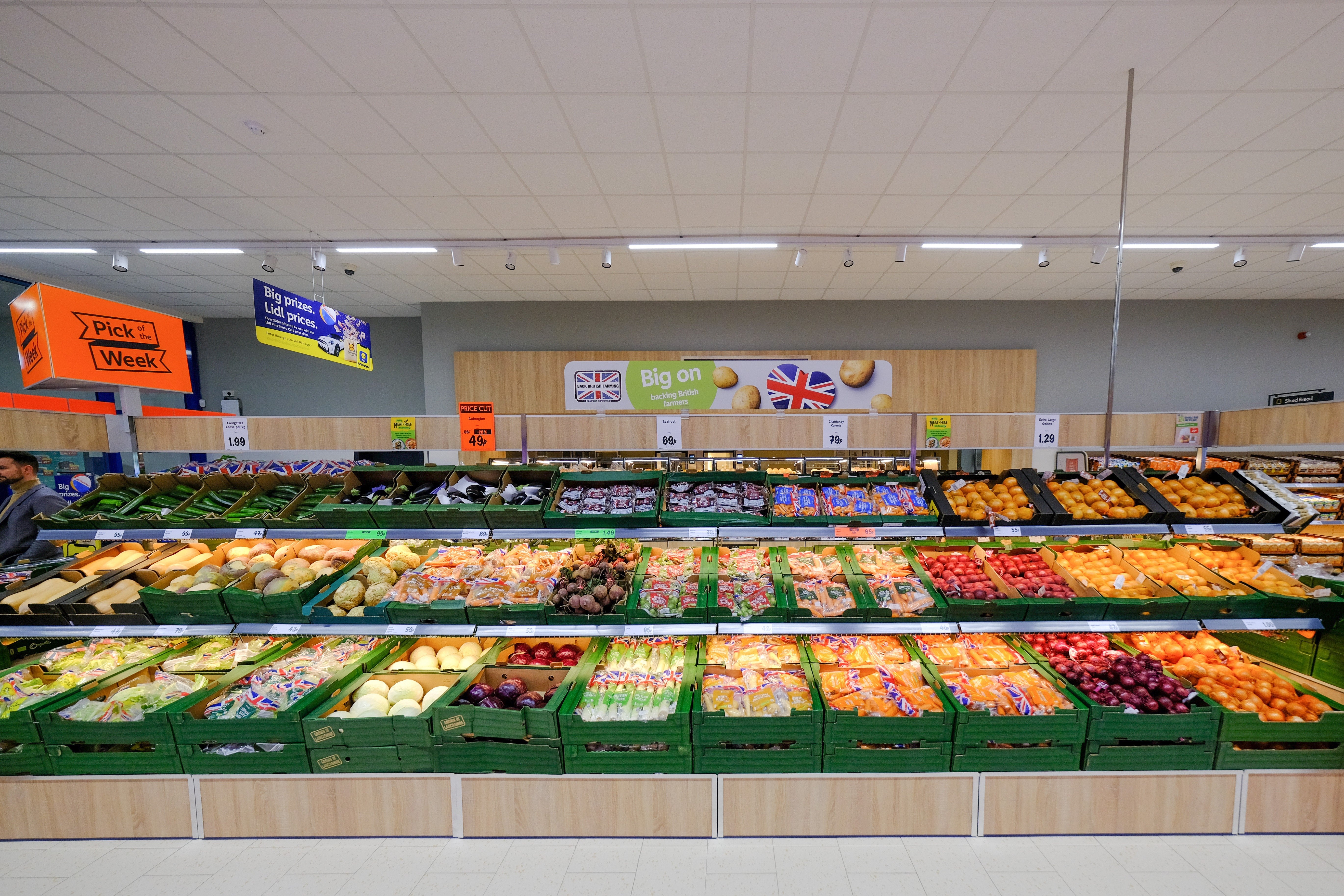Food price inflation still climbing as our myopic government drives the economy off a cliff
The Bank of England has had to intervene in the markets again as the consequence of government economic judgement bites down on struggling families, argues James Moore


Financial data that raise an expletive? It’s rare, particularly for those who’ve been around the block a few times. Researcher Kantar’s latest figure for food price inflation – however – does the job for me.
True, the numbers have been running hot for some time. But 13.9 per cent is verging on the catastrophic. It’s a sickener for families in financial peril.
Assuming the same basket of goods, the average household is facing a £643 jump in their annual grocery bill, bringing the total to an ugly looking £5,265.
Remember this time last year when it was held that inflation would be “transitory” and would fall in short order? Those forecasts, made by the Bank of England among others, now look woefully inadequate. There is a reason why economics is often branded “the dismal science” or some derivation of that.
The problem with inflation, as we are now all learning to our cost, is that once it takes hold, it rapidly becomes entrenched and is desperately hard to get rid of even when you don’t have a government actively working against bringing it down through unfunded tax cuts.
Bank of England base rates at 2.25 per cent are looking woefully inadequate. Members of the rate-setting Monetary Policy Committee (MPC) have previously argued that putting on the after-burners mightn’t do all that much to put a lid on the inflationary surge. A sizeable chunk of it is global in origin. The MPC has no power to influence global energy markets, for example.
On the other hand, the UK’s rates are still high by international standards. The Bank has mused about “second-order effects” in the past, which it has more ability to influence. Now might be a good time to try, even with the economy in a decidedly shaky state. Some level of control needs to be asserted.
MPC members have recently intimated that they’re of a mind to do that. They’ve talked tough before, then stopped short of going in hard. They might not have much choice come the next meeting.
Consumers, of course, have the power to reduce the hit they are taking to their wallets by switching the items they buy. There is evidence that they are doing so. Wonky veg is becoming more popular. Strangely-shaped swedes or odd-looking aubergines, which used to go to waste, are hot sellers.
Supermarkets used to argue that their obsession with the sort perfectly shaped product that nature doesn’t always do was down to the consumer. A lot of perfectly edible food went to waste as a result. Now, not so much, if the price is right. Sales of Tesco’s “Perfectly Imperfect” produce or Morrisons’ “Naturally Wonky” veg were collectively up by 38 per cent, according to Kantar.
Cheaper own-label products, meanwhile, turned in 8 per cent growth while brand names declined by 0.7 per cent. Aldi, and especially Lidl, which offer less choice but lower prices, continue to outpace the market in terms of growth even with the traditional supermarkets price matching to them across various ranges.
But what happens to those who were already buying all the wonky veg, and the own-label product, and the close-to-sell-by-date stuff on promotion, that they could get their hands on before inflation started surging to record levels?
What happens to people who have already done all they can to reduce their outgoings?
Their numbers will grow every time a figure like this comes out. The problem goes beyond people who don’t have jobs too. The latest labour market data showed the jobless rate at a record low of 3.5 per cent (the number of people not working as a result of long-term illness also hit a record high of 2.5 million).
A substantial number of people supported by universal credit are in some form of low waged employment. The TUC makes the point that roughly 40 per cent of claimants are in this group.
Even if working-age benefits are increased in line with inflation – which the government is resisting – they will still undershoot food price inflation, which is one of the biggest costs faced by struggling families.
If they are increased in line with wages, as is planned, poverty will be the result. Food poverty, in what remains one of the world’s largest economies, despite the government’s best efforts to change that status for the worse. If ministers are prepared to tolerate that, they have lost all sense of morality.
Yet still, the terminally myopic pair of Liz Truss and Kwasi Kwarteng stick to a “growth” plan that has the markets in meltdown (again) and the Bank of England intervening (again) and that no one beyond a handful of eccentric academics and ideologues think stands a prayer of working.
There is a sense of things coming to a head, and not in a good way.
Join our commenting forum
Join thought-provoking conversations, follow other Independent readers and see their replies
Comments
Bookmark popover
Removed from bookmarks